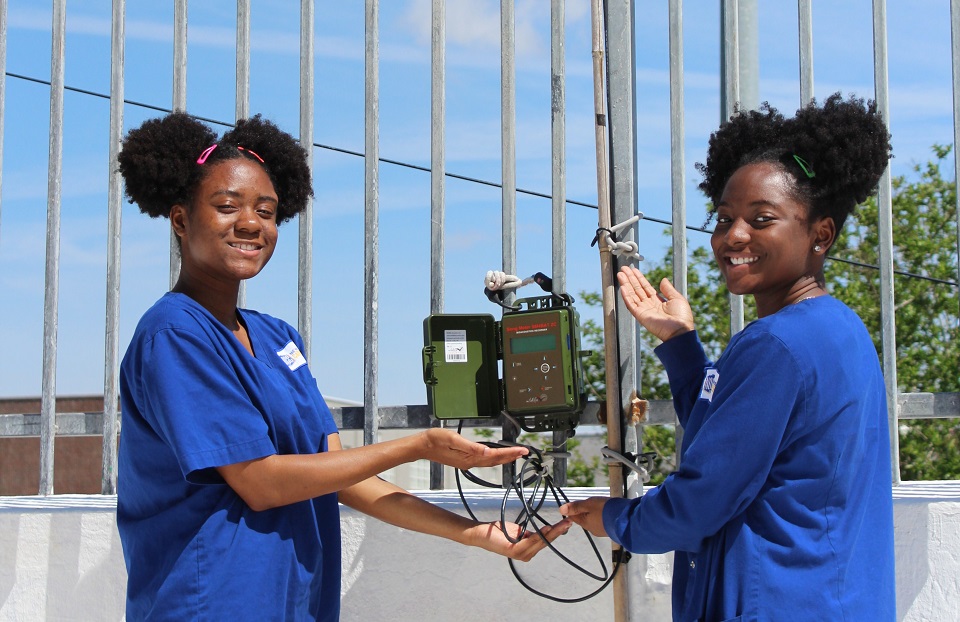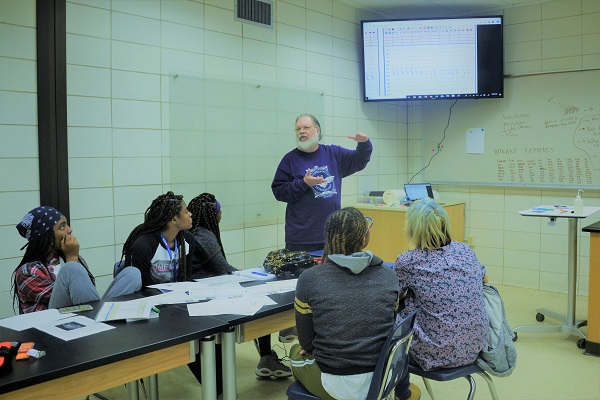STEM Outreach, STEM Research Grants
Getting batty about STEM

According to the National Park Service, bats have an important role in maintaining healthy ecosystems, which makes studying them and their behaviors a priority. Luckily, a team of students in New Orleans led by Samuel Loftus is on the case. Sam has been a science teacher at New Orleans Charter Science and Mathematics High School for nine years. As a 10th grade biology teacher, with a background in evolutionary genetics and marine biology, he is well-equipped to assist students working on biology or ecology-related projects. Sam also finds it rewarding to guide them towards pursuing their own research interests. In 2019, Sam received a $5,000 STEM Research Grant to purchase bat monitoring equipment and to provide student transportation to a wetlands research station in Chauvin, Louisiana.
With the grant, Sam purchased four acoustic bat detectors and a portable handheld ultrasonic microphone. It also supported transportation to and from the Louisiana Universities Marine Consortium (LUMCON), where Sam’s students participated in an intensive three-day research workshop led by Loyola University Professor of Biological Sciences & Environment, Craig Hood. They learned how to maintain their newly acquired detectors, download files from them and analyze captured sonograms. The group then came up with a deployment plan for the bat detectors to be set up at different locations throughout New Orleans and are beginning to delve into how things like artificial light, extreme weather events and termite swarms affect bat activity.

“The time spent at LUMCON adds more dimension to the work my students are doing because they have a concrete experience with the coastal environments they read about in bat ecology literature,” Sam remarked. “This team has generated more questions and designed new experiments beyond the original long-term monitoring programming proposed by our founding student researchers.”
As a result of receiving the STEM Research Grant, Sam has witnessed a notable confidence boost among his student researchers. “They see themselves as contributing members of the scientific community and understand that the work they are doing is authentic and novel. This elevates the image other students have of our school and the value of the education we can provide,” Sam noted. Statements from Sam’s students support this sentiment. One of them, for example, commented on the benefits of having access to professional equipment: “Having the bat detectors is cool because I know a lot of schools don’t have the equipment to do real research. Working on this project is going to help me develop skills I will need because I want to be a scientist.”

The echo generated by Sam’s students and their bat research has also helped engage others in the broader community, shifting school culture. “Other teachers discuss the research that is happening at our school in their classes and underclassmen are excited to have the opportunity to apply to join the research team,” Sam said.
In Sam’s experience, teachers working with limited means should not feel discouraged. “I have two piece of advice. One, be creative with online databases. There is so much data out there ready to be analyzed. Two, students don’t usually need expensive resources to complete their work. They need a mentor who will listen to what they are interested in and give them a hand with experimental design.”


